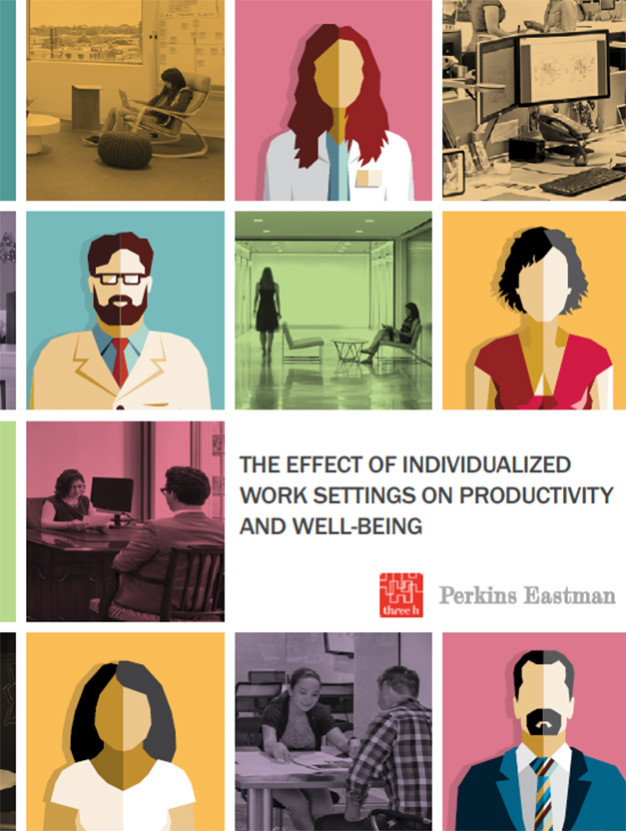Perkins Eastman: The Effect of Individualized Work Settings on Productivity and Well-Being

This research looks at the evolution of office environments and examines how present day activity-based work environments support employee personalities and work modes. There has been extensive research to suggest the positive effect of activity-based work environments on employee performance, collaboration, and well-being. However the same. attention has not been paid to the importance of individualization in these environments. We all have such vastly different personalities and it is important to be cognizant of these personal differences when determining in which environments we work and learn best. Activity-based work environments provide flexible work spaces to the degree that they offer a choice of where to work and can support a variety of work activities.
However, the furnishings in these spaces often make little allowance for individual user preferences and/or unique work-styles-ie. employee personality types. To investigate this issue, this study examines various topics that relate to the physical workplace, including an overview of the history and evolution of the office, a review of studies related to emerging trends in workplace design, and an investigation into the relationship between individual strengths/ personality type and the workplace’s physical conditions. The second phase of this investigation will include an in-depth exploration of personality and intelligence types within an office setting, and how the physical environment may be shaped to optimally support both the individual and the organization as a whole.





